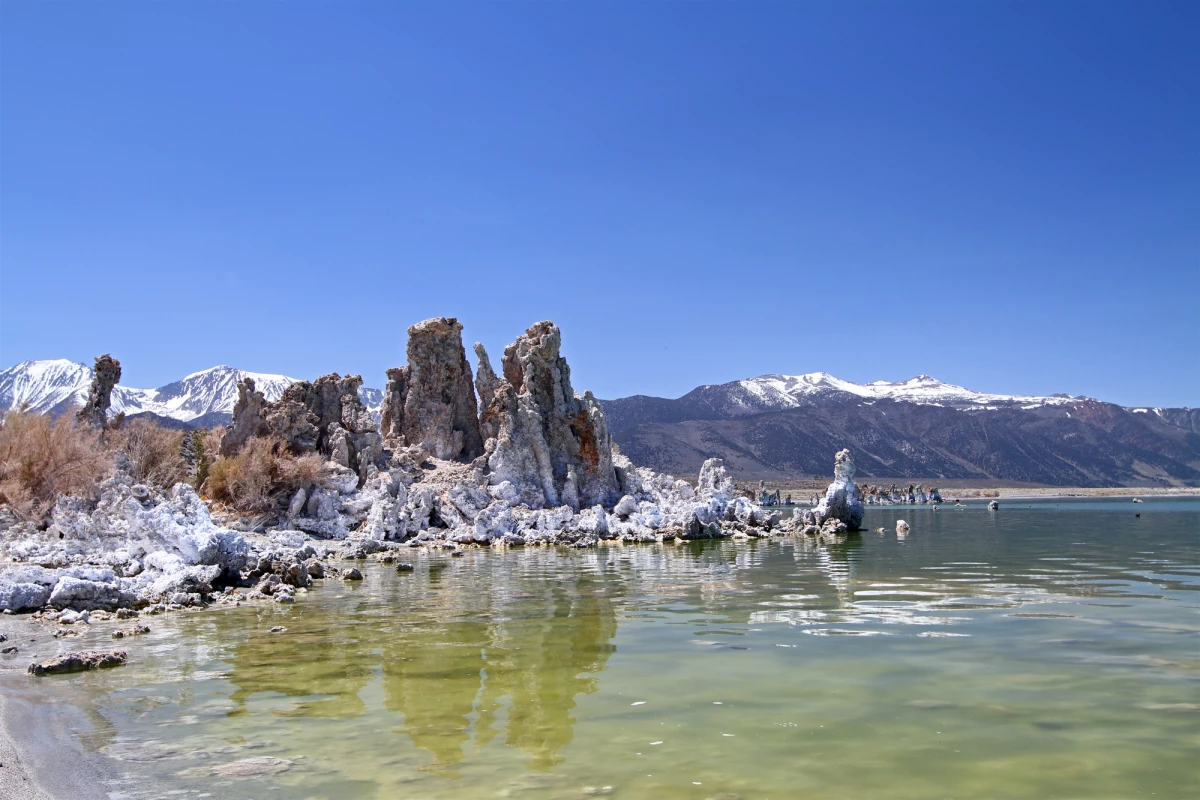For decades, scientists have pondered the so-called "phosphate problem" when seeking to understand the origins of life on Earth. The problem revolves around the fact that phosphorous is one of the six key chemical ingredients of life, yet its scarcity raises the question of how early Earth supplied this essential element. A new study has now provided a possible explanation.
The study, conducted by researchers at the University of Washington, looked at lakes rich in carbonate, which form in dry environments when water drains from the surrounding landscape into depressions. Due to the high evaporation rates of these shallow lakes, the waters become highly salty and alkaline solutions, hence their name alkaline or soda lakes.
The researchers examined phosphorous levels in existing carbonate-rich lakes, which are found on all seven continents. Although phosphorous concentrations are affected by when and where samples are taken, the team found that the levels of phosphorous found in such lakes can be up to 50,000 times that found in seawater, rivers and other types of lakes. This led the researchers to believe that there is a common, natural mechanism responsible for the accumulation of the phosphorous in these lakes.
The explanation the team landed on centers on the carbonate content of the lakes. In most lakes, calcium, which is much more abundant than phosphorous, binds with it to form solid calcium phosphate materials that life isn't able to access. However, in carbonate-rich lakes the carbonate takes precedence in binding with the calcium, leaving an amount of the phosphate left over without a dance partner. The researchers conducted lab tests combining different concentrations of ingredients and found that calcium does indeed bind to carbonate, leaving phosphate freely available in the water.
Along shorelines, in pools separated from the lake's main body, or during dry seasons when lake waters evaporate, the researchers say phosphate levels could climb considerably, up to a million times levels found in seawater.
"The extremely high phosphate levels in these lakes and ponds would have driven reactions that put phosphorus into the molecular building blocks of RNA, proteins, and fats, all of which were needed to get life going," says study co-author David Catling, a UW professor of Earth & space sciences.
Adding extra weight to the theory is the fact that the early Earth, when the building blocks of life on Earth were developing, had a very carbon dioxide-rich atmosphere. This would have provided excellent conditions for the creation of carbonate-rich lakes with high levels of phosphorous. Additionally, carbon dioxide from the atmosphere dissolving in water would have created acidic conditions that prompt the release of phosphorous from rocks.
"The early Earth was a volcanically active place, so you would have had lots of fresh volcanic rock reacting with carbon dioxide and supplying carbonate and phosphorus to lakes," says study first author Jonathan Toner, a University of Washington research assistant professor of Earth and space sciences. "The early Earth could have hosted many carbonate-rich lakes, which would have had high enough phosphorus concentrations to get life started."
The study appears in the journal PNAS.
Source: University of Washington




